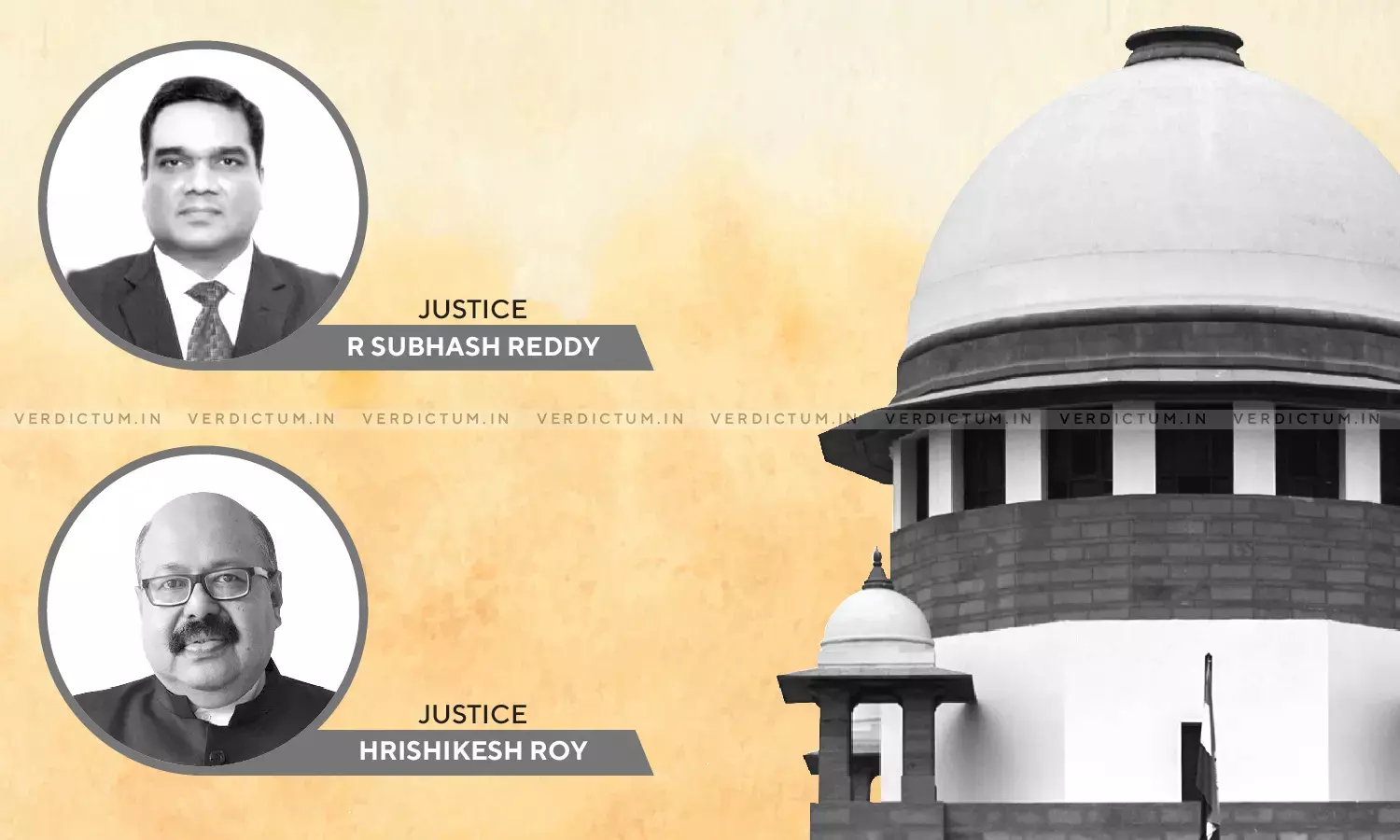No Specific Allegations Against Family Members, Names Casually Mentioned In FIR – SC While Quashing Chargesheet In Dowry Death Case
A two-judge Bench of Justice R. Subhash Reddy and Justice Hrishikesh Roy while quashing the chargesheet against the Appellants-Accused has held that except for vague and bald statements, there were no specific allegations disclosing the involvement of the Appellants to prosecute them for the offences under Indian Penal Code and Dowry Prohibition Act. The Appellants are the Brother-in-law and the Mother-in-law of the victim.
Senior Counsel Ms. Vibha Datta Makhija appeared for the Appellants-Accused, while Counsel Mr. Sahdev Singh appeared for the State and Counsel Mohd. Asad Khan appeared for the Respondent-Complainant before the Supreme Court.
An appeal was preferred by the Appellants-Accused assailing the judgment of the Allahabad High Court which had dismissed the Petition of the accused of quashing of proceedings and directed the Appellants to surrender and apply for a grant of bail.
In this case, the Appellants-Accused were charged under Sections 498-A, 323, 504, 506, 304-B of IPC and Sections 3 & 4 of the D.P. Act for allegedly killing their daughter-in-law over dowry demands not being met by the latter.
The 1st Appellant (Brother-in-law of the deceased) argued before the Supreme Court that he was working as a Cashier with ICICI Bank and was on duty on the date of the incident. It was further contended that on vague and bald allegations, Appellants were sought to be prosecuted without any specific allegations either in the complaint or the chargesheet.
While the Respondents argued that as per the postmortem report the cause of death was clearly asphyxia, hence there were no grounds to quash the proceedings against the Appellant-Accused.
The Apex Court noted that a perusal of the complaint filed by the 2nd Respondent, pursuant to which a crime was registered did not indicate any specific allegations against the Appellants-Accused. It was further held that the 1st Appellant had filed an affidavit when the investigation of the case was pending stating his employment details and also that he was falsely implicated.
Additionally, the Bench observed, "Even in the statement of 2nd respondent recorded by the police and also in the final report filed under Section 173(2) of Cr.P.C., except omnibus and vague allegations, there is no specific allegation against the appellants to show their involvement for the offences alleged."
"This Court, time and again, has noticed making the family members of husband as accused by making casual reference to them in matrimonial disputes," the Court opined.
Further, the Court placed reliance on the judgment in the case of Geeta Mehrotra and Anr. v. State of Uttar Pradesh and Anr., where the SC had in similar circumstances had quashed the proceedings as the family members of the husband were shown as accused by making casual reference to them.
The Court in the aforementioned judgment had also held that a large number of family members are shown in the FIR by casually mentioning their names and the contents do not disclose their active involvement, as such, taking cognizance of the matter against them was not justified. It was further held that taking cognizance in such types of cases results in abuse of the judicial process.
"Except vague and bald allegations against the appellants, there are no specific allegations disclosing the involvement of the appellants to prosecute them for the offences alleged," the Court observed.
Accordingly, the Court allowed the appeal and set aside the impugned order of the High Court and quashed the proceedings as against the Appellants-Accused.
Click here to read/download the Judgment




